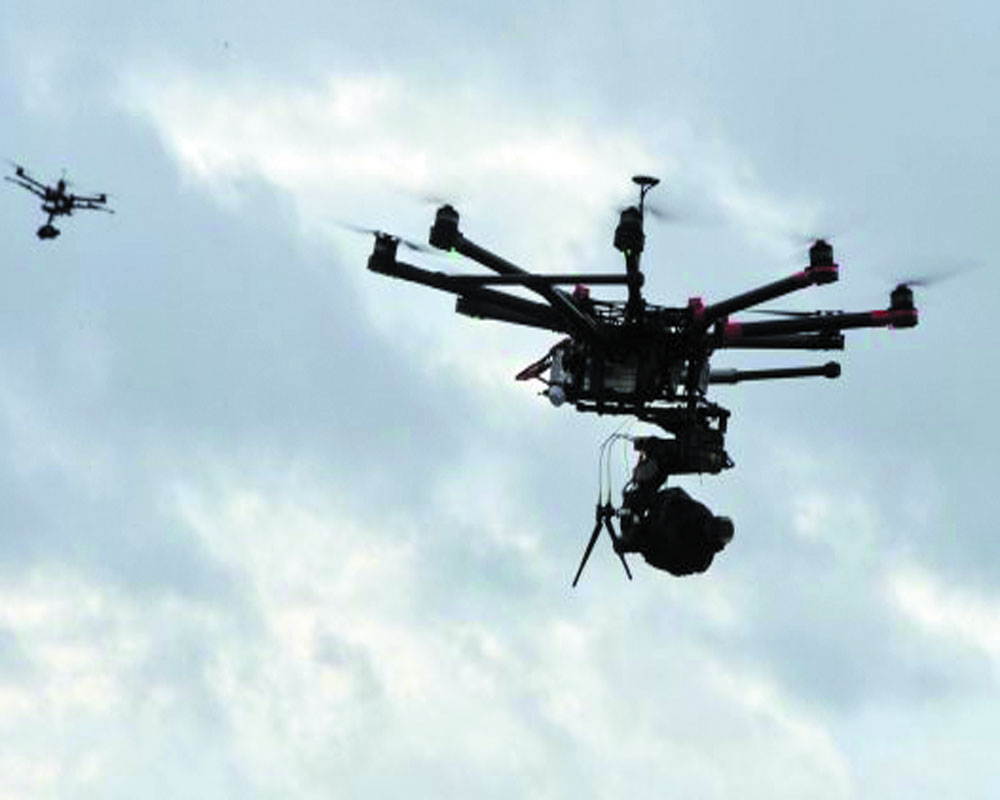Drones can fly in the Indian airspace from December 1 with a lot of caveats. But they will require strict monitoring
The Government’s decision to allow commercial drones will definitely allow India to spread its wings in the sky. With this move, we have joined the league of advanced economies like the US, UK and Australia among others that have been using the drone technology for years for socio-economic benefits while keeping an eagle eye on security protocols. It would definitely help us realise the full potential of a digital society and access services and conveniences, cheap and on time, without the baggage of maintaining a huge infrastructure or a workforce. The immediate beneficiary will be the healthcare sector; hospitals and institutions can now airlift organs, blood units and other medical supplies faster within the golden period of treatment and hence save lives. Not only between cities but to far flung areas as well. You do not need to create green corridors along congested road networks. Drones have wide application in agriculture as they can be used for monitoring, mapping and planting purposes. In fact, a drone’s reconnaissance capacity, that makes it a favourite military tool, can be used to harvest data for many site studies and on-ground projects.
However, there has always been a debate about invasive drones being a threat to our security network. And it is because of this that the government took longer than usual to iron out a fullproof protocol, given our risks to internal security, particularly from terrorism. Also in the absence of an international flying code for unmanned aerial vehicles, the Civil Aviation Ministry had to evolve its own rules that will be upgraded with changing circumstance. The caveats appear to be well thought out and if implemented right should eliminate threat perceptions and fears of misuse by private operators. Under the new law, droners will be required to keep to a certain payload, tag their aerial vehicles with a name and a unique identification number. Operators will also have to obtain a series of approvals like the ‘Unmanned Aerial Operator Permit’ and an insurance cover. Barring exceptional cases, drones will be allowed to fly only during the day with a condition that they remain prominently visible. These restrictions have been put in place to ensure that in the event of a complaint, authorities can zero in on violators in no time. But as sensible as they may appear, practically speaking, for any regulation to acquire teeth, there must be strict vigilance and implementation of codes. Therefore, a task force to oversee operations is essential. The applicants must be screened thoroughly too with a clear statement of the purpose of his/her drone services. Besides, the entire process of procurement of licences should be frictionless and cost-effective, else there will be no takers. Flying codes must indeed be kept sacrosanct. Drones cannot be allowed to trespass in restricted zones, particularly in congested metroscapes. What happens in the outside case of a bird-hit or a slightly off-course manoeuvre hitting a building? While technology can provide life-altering benefits, it is also susceptible to human manipulation by way of being hacked into and used as a tool of terror. Perhaps it is for this reason that retail deliveries have been kept out of the ambit for the time being, a move that could revolutionise e-commerce and logistics.


























